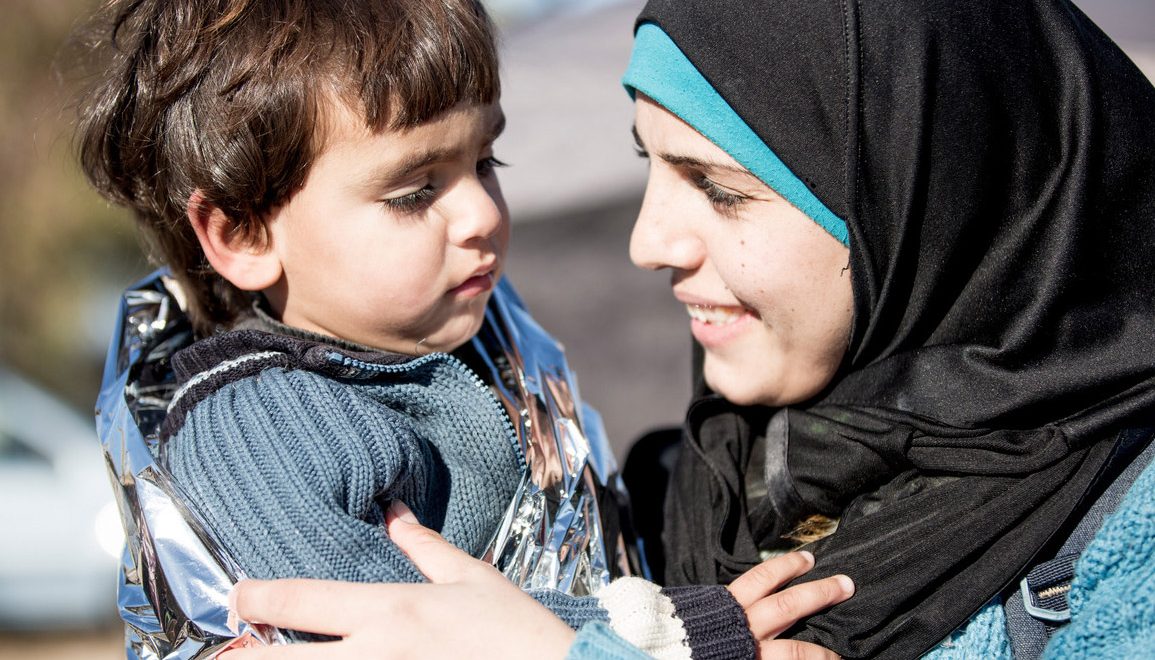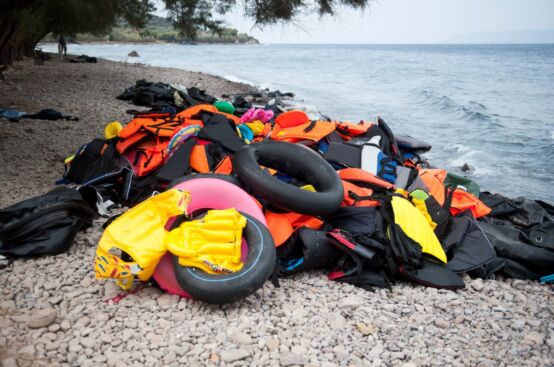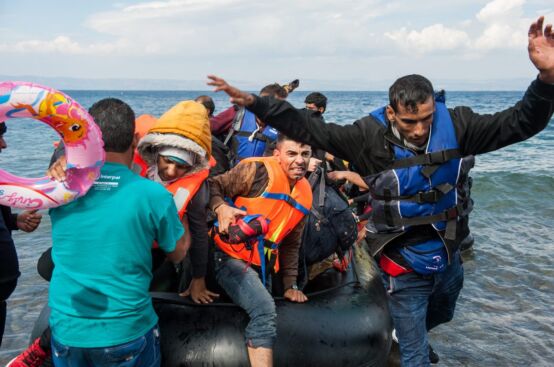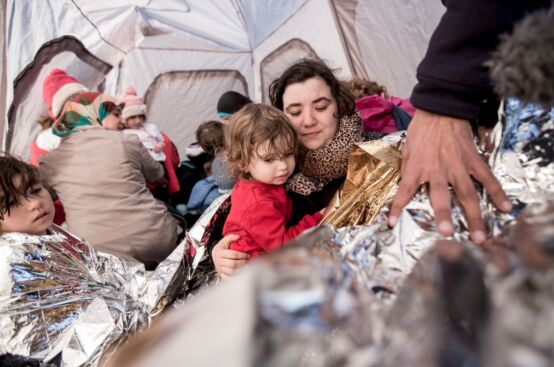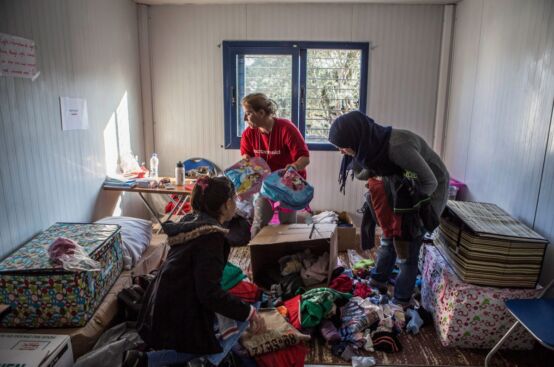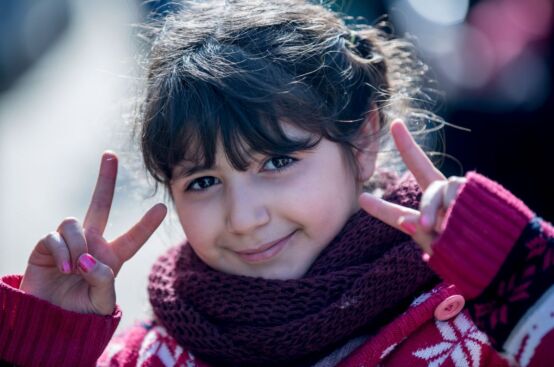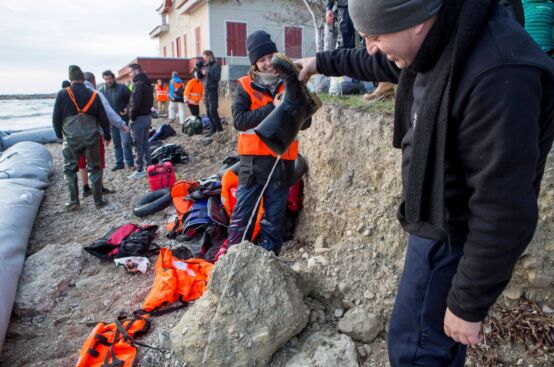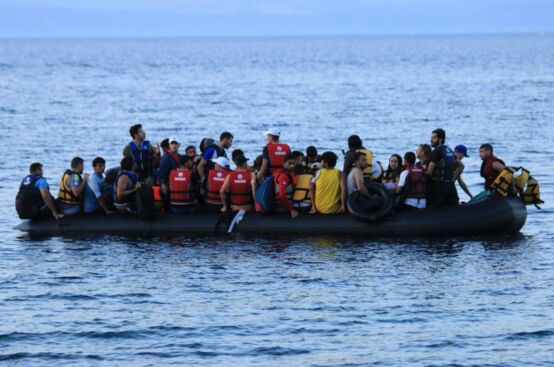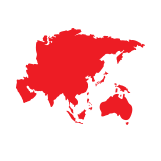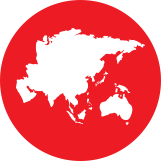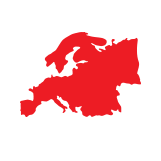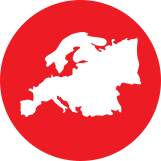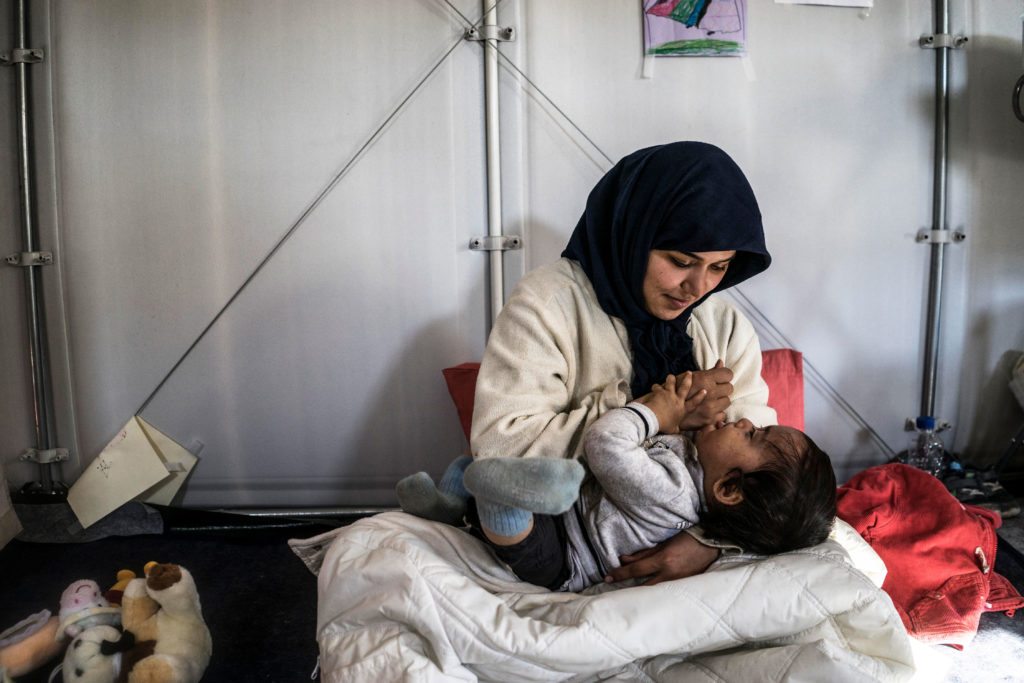
Photo: Anna Pantelia/ActionAid
Mothers and babies have very specific needs, and this is never more obvious than during a humanitarian disaster, when it’s incredibly difficult for women to feed and look after their vulnerable infants. That’s why one of the first services ActionAid provides in disaster situations are mother and baby centers.
The current refugee crisis is the worst the world has seen since the Second World War. Globally, there are more than 21 million refugees, many of whom are fleeing conflict in countries like Afghanistan, Iraq, Libya and Syria. Thousands of people pass through the Lesvos refugee camp in Greece on their long and arduous journeys to Europe.
At the ActionAid centers, women are given hygiene kits including wipes, soap and diapers so they can clean their babies – often for the first time after a long journey. The centers are safe spaces where mothers can breastfeed in private and also talk and grieve with women who share their experiences.
“When the mothers arrive here, they are physically exhausted. How can these women feed their children if they aren’t strong enough to feed themselves? But the mothers leave the center stronger and calmer, and when you help the mothers, the entire family benefits.”
Anna, an ActionAid staffer at the Moria Refugee Camp in Lesvos, Greece
Narges is mom to two children – Reihaneh and baby Mohammed Sajat. She was born in Iran to Afghan parents.
“Our life in Iran was tough. Being Afghans living in Iran, we didn’t have any rights. We could not go to school and it was the same for my kids. My children were forbidden to go to school.
“The hardest part was at the border between Iran and Turkey. We had to walk all night.
“When we finally reached Istanbul, the human traffickers smuggling us locked us up in a dungeon with 150 people, until we gave them more money.
“I was terrified and very upset. We had given them all our money for this journey and now we were scared for our lives and the lives of our children. When the time came to get onto the boat, we saw more than 50 people crammed in a nine-meter boat. They forced us into the boat by pointing their guns at us.
“I couldn’t believe it when we reached the shore alive. At that moment all that mattered was my kids were alive and I had them with me.”
In the Lesvos centers, ActionAid’s cultural mediators, who speak Arabic and Farsi, as well as English and Greek, provide much-needed emotional support to mothers like Narges experiencing trauma. Among few people on the island who can speak the same language as the refugees, they bring hope and reassurance to women who feel isolated and scared.
Narges comes to one of ActionAid’s mother and baby centers every day, while she waits to continue her journey.
She says, “I feel calm when I’m here. It’s really friendly and warm. Sometimes I think of my home in Iran. I miss my mum and dad. I don’t know how and when I will see them again.”
